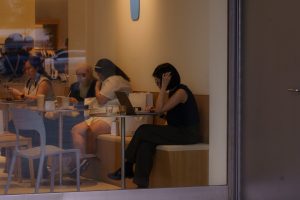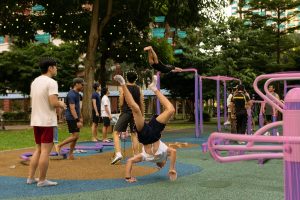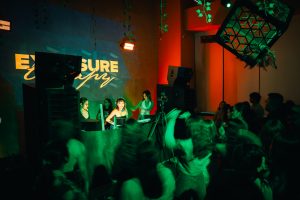As the story goes, after completing his technical degree in India, he was unable to find a job. Quickly running out of money, he took a leap of faith, boarding a ship to British Malaya with no plan and little more than twenty dollars in his pocket. It paid off: he found himself a job in his field of expertise, and worked his way up the company ladder to material success and wealth.
The accuracy of that legend is contestable. But it speaks to the traditional ingredients—hard work, good education, some derring-do—that has always been the recipe to a successful career for any young person.
In today’s working environment, however, there’s a wild card in the pot: disruption.

Accordingly, the students of today will have to face a workplace radically different from that of their parents or seniors. How are they shaping up?
To answer this question, Milieu Insight, an independent Singapore-based research company, conducted a survey of Singaporean youth—30 and under—on the expectations (and realities) of working life. Particularly, we noted several discrepancies between youth who were still students, versus those who were already employed.
If there’s one thing even my frustrated, fourteen-year-old-self could have told you, it’s that little to none of the material I was studying in secondary school would be relevant to my future career. Chemistry, biology, mathematics: turn up, for what?
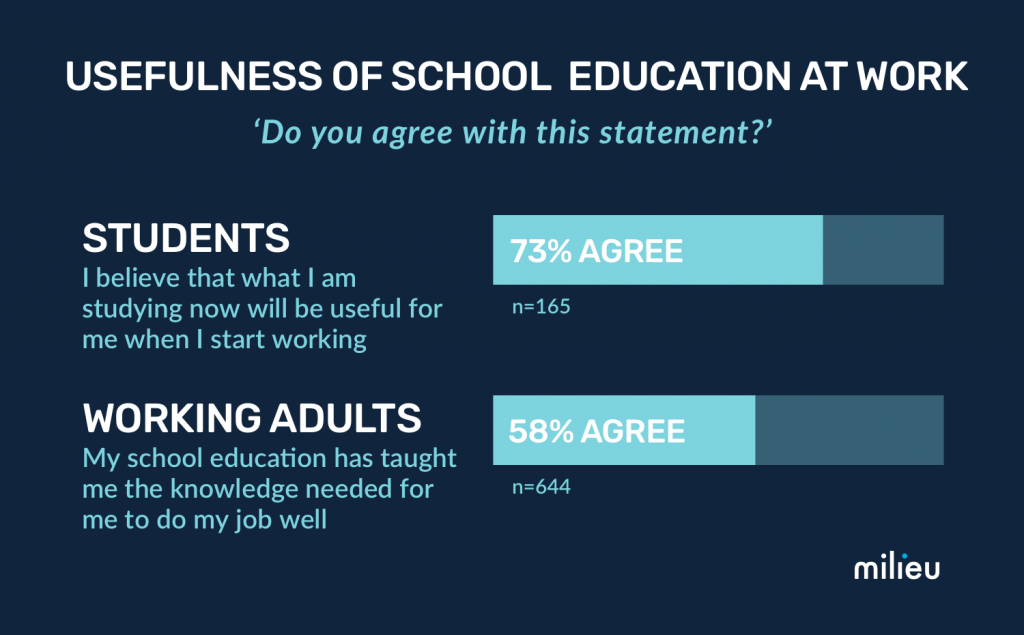
However, amongst the workers surveyed, only 58% found that their education was useful to their jobs. This is a stark drop, reflecting perhaps the degree to which students underestimate just how ‘disrupted’ the current workforce is.
Even for professional fields that are perceived as ‘safe’ and ‘requiring a human touch’, like legal and healthcare services, tech disruption is chipping away at low- to mid-level tasks, requiring less manpower—meaning fewer jobs. Is it little wonder that youth in today’s workforce feel that their qualifications are somewhat irrelevant to the fast-changing workplace?
So what’s the golden ticket to career progression in this newly disrupted economy? To be perfectly honest, the answer can’t have escaped you, what with the near-omnipresent advertising for schemes like Workfare, Skillsfuture and the like.
The government has clearly been zeroing in on lifelong learning, especially for working adults in their mid-40s, facing career stagnation and possible retrenchment from long-term jobs. But attitudes to lifelong learning amongst Singapore’s youth are just as important.
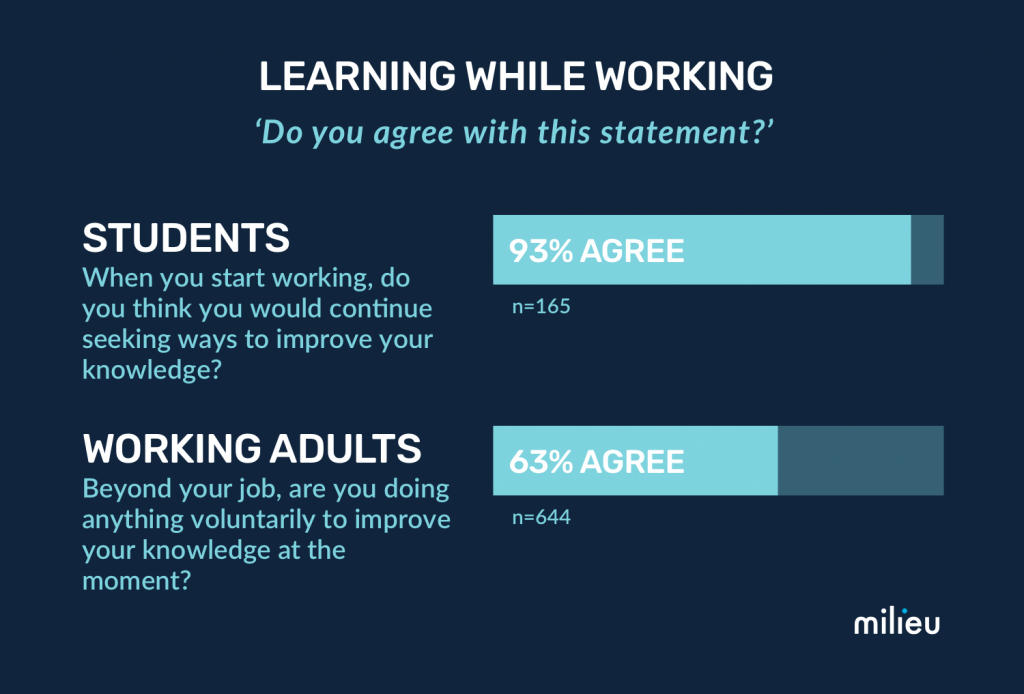
But perhaps this is because they have yet to encounter the soul-sucking nature of daily work. And, as any National Serviceman can tell you, returning to rigorous study once you’ve taken a ‘working break’ is no easy feat—I should know; it left me positively brain-dead.
The numbers paint a similar picture: only 61% of working adults responded that they were engaging in any educational activity outside of their jobs.
The 32% discrepancy demonstrates what often happens when youthful idealism slams into the drudgery of adulthood: it crashes. While many youths may want to continue their education after student life, the results show that fewer can actually follow through on that commitment.

But on the whole, if technical skills can’t quite cut it, what’s the secret ingredient to a successful career?
Soft skills, say the students. And they may be right.
When surveyed on what factors contribute to career progression, 32% of Singapore students felt that soft skills such as leadership and interpersonal communication were paramount, beating out more conventional factors—things that my grand-uncle would’ve believed in—like technical skills (28%) and hard work (19%).
Insofar as Singaporean students believe that soft skills are essential to their future career, they seem to be right. But it’s not just about having high E.Q.
Nowadays, when every imaginable dataset or factoid is available at the click of a button, what matters is the human ability to draw insights from that information. Robots can always exchange information, but they cannot exchange emotions, nuanced perspectives, complex ideas, to network or collaborate effectively.
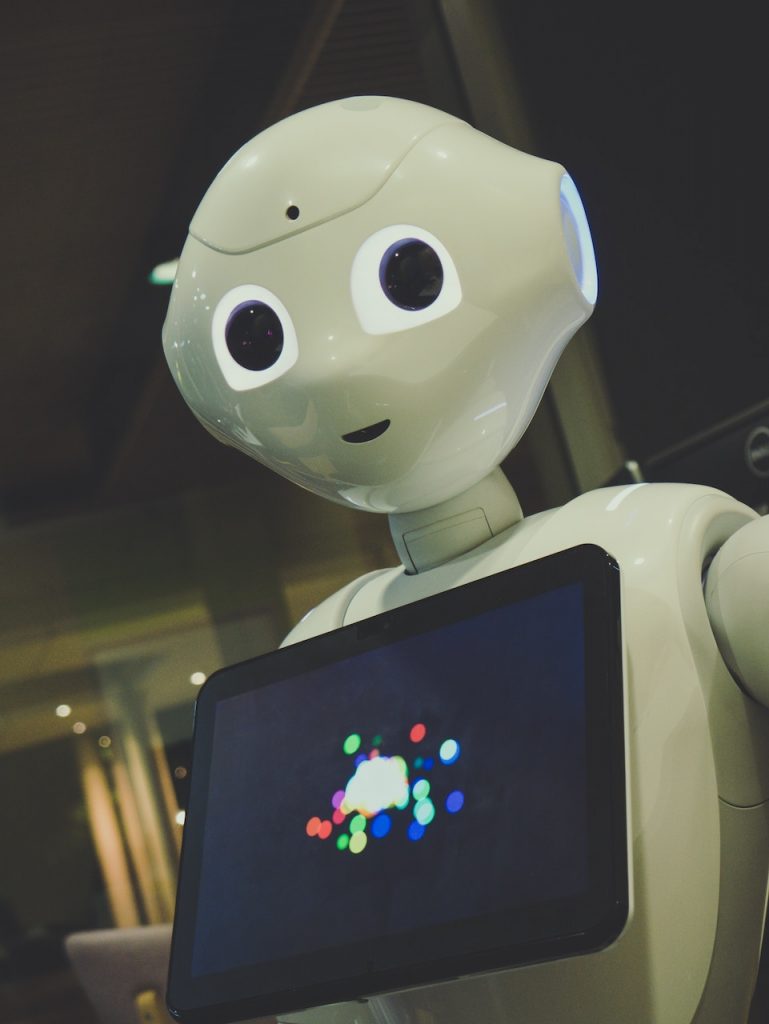
As to which market disruptions reduce an employee’s value to the company — well, that’s up to you to decide.
Many amongst the older generations are frustrated that the youths of Singapore are hopelessly idealistic when it comes to their future careers. And they’re right. We are idealistic, but that idealism is underscored by an appreciation of the modern, disrupted work environment, and the skills that we’ll need to navigate it.
Times are turbulent. But chaos is a ladder; disruption destroys old opportunities, but creates new ones. Singapore youth need to be flexible, step outside their boundaries, and take advantage of our unique position on the world map. There are ships aplenty, and we’ve got a lot more than twenty bucks — time to get on board.
What can Singapore’s youths do to ensure that they are well-equipped to cope with workplace disruptions by 2025?
Share your views on YoCo, a civic participation platform run by the National Youth Council that encourages all millennials to partake in more in-depth discussions of issues they care about.


